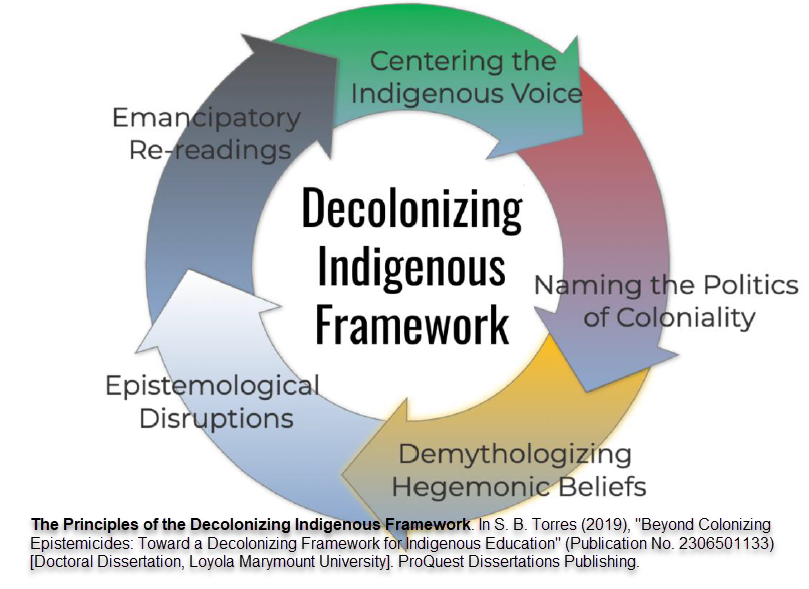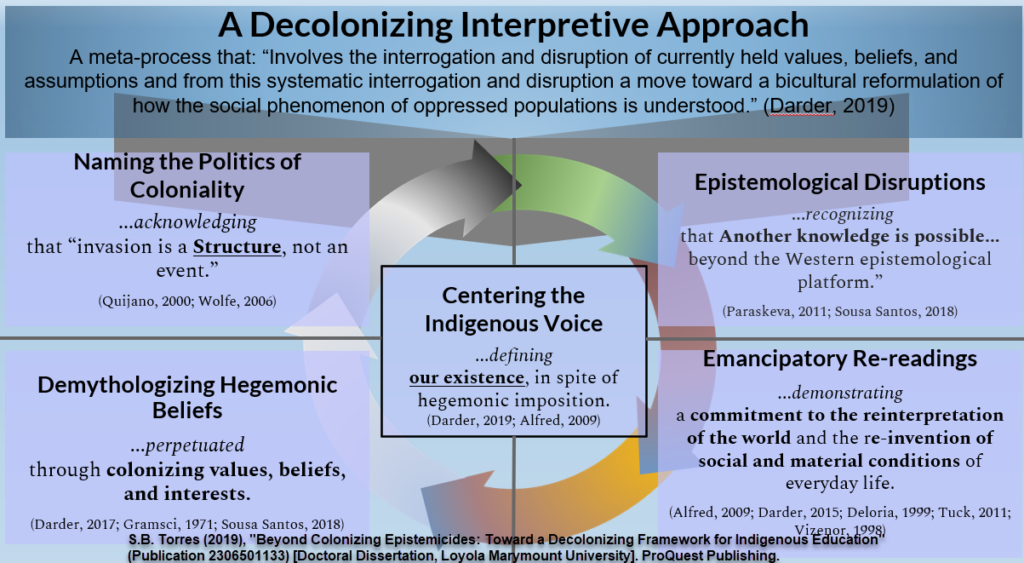American schooling and Indigenous peoples share a coarse relationship mired by devastating periods of forced removal, indoctrination, and brutal assimilation methods (boarding schools, foster care, and adoption, to name a few). Over the course of more than a century of failed education policy—and often veiled in philanthropic intentions—Indigenous peoples have yet to witness a comprehensive Indigenous education program that fundamentally honors the federal trust responsibility of the United States government.
On the contrary, with a contemporary approach of apathy, invisibility, and institutionalization, it is not difficult to see the legacy of settler colonialism continuing to wield its oppressive influence on Indigenous communities in the U.S. Patrick Wolfe’s (2006) claim that “invasion is a structure, not an event”, prompts the recognition of the coloniality of power—referring to the complex of modern forms of exploitation and domination, long after the termination of formal colonial operations. One of these expressions that persists in supporting the political and economic domination of the West is the function of epistemicide—literally the murder of knowledge—a lethal tool of colonization that perpetuates social and material commitments to imperialism and white supremacy.
Published by Samuel B. Torres, NABS’s Deputy Chief Executive Officer, the decolonizing interpretive approach of this doctoral dissertation serves to:
- Examine the historical and philosophical foundations of colonizing epistemicides and their impact on contemporary Indigenous education; and
- Move toward the formulation of a decolonizing Indigenous framework for contemporary Indigenous education and community contexts.

The Five Principles of Decolonizing Indigenous Framework exist in a relational and dialogical format, in stark contrast to the hierarchical tendency conventionalized by the West. The principles include:
- Centering the Indigenous Voice
- Naming the Politics of Coloniality
- Demythologizing Hegemonic Beliefs
- Epistemological Disruptions
- Emancipatory Re-Readings
Alternatively, each principle can also be understood through the following parallel concepts:
- Practicing True Solidarity
- Telling the Truth about Historical Oppression and Trauma
- Unmasking Unchecked Attitudes and Beliefs that Perpetuate Inequality
- Engaging Dissident Dispositions
- Transforming Hope to Possibilities

Grounded in Antonia Darder’s (2012, 2019) critical bicultural theory and a decolonizing interpretive methodology, this qualitative study examined the many factors facing the indigenization of education, while implicating the pernicious impact of epistemicides and a culture of forgetting. The study provided a robust framework by which to situate a particular curricular approach through a set of five decolonizing principles that aim to shape a meaningful reflection of Indigenous consciousness. A commitment to these decolonizing principles necessarily means an emancipatory re-reading of Indigenous relations within the scope of contemporary education. It calls on educational and community leaders to ground their decision-making in the ancestral teachings of Indigenous communities, for a genuine reimagination of self-determination and sovereignty in the contemporary moment.
Citation:
Torres, S.B. (2019). Beyond Colonizing Epistemicides: Toward a Decolonizing Framework for Indigenous Education (Publication No. 2306501133) [Doctoral Dissertation, Loyola Marymount University]. ProQuest Dissertations Publishing.
Links to Full-text:
Digital Commons, Loyola Marymount University
ProQuest Dissertations




